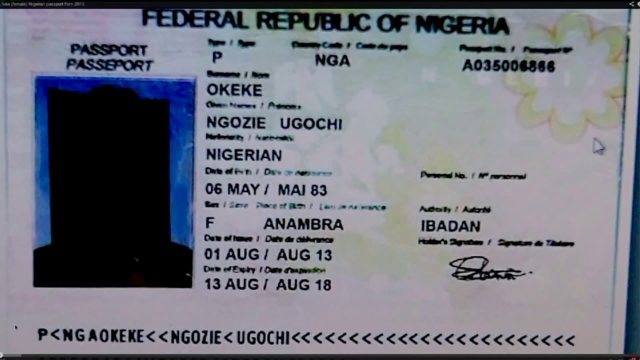 NEW YORK (PIX11) – But revelation that two Iranian passengers on the flight were able to board using stolen passports – has not eased concerns about what appear to be gaping holes in the international security net that we all rely on once we leave America’s sphere of influence.
NEW YORK (PIX11) – But revelation that two Iranian passengers on the flight were able to board using stolen passports – has not eased concerns about what appear to be gaping holes in the international security net that we all rely on once we leave America’s sphere of influence.
As more information pours in regarding the two passengers in question investigators are now slowly turning away from any terror link.
Interpol currently maintains a database that contains millions of lost and stolen passports.
Only three countries – the United States, United Arab Emirates, and the U.K. run travelers’ information against that database.
Sal Lifrieri is a terror and security analyst who tells PIX11, “So if you’re flying through a country, and that’s what we see with this particular case, you can fly into this country, and have a very minimal passport check – and move on to the next country.”
So how can you protect your passport – especially if you’re traveling internationally?
Technology consultant Raj Goel says the answer involves treating biometric, high-tech passports like cash.
“Correct. It’s the same exact concept, except you use slightly thicker plastic. So that somebody walking by can’t just do a brush pass and do RFID cloning of my passport, driver’s license, credit cards – or whatever have you. It takes a few seconds,” said Goel.
Keep it close, and remember that a criminal doesn’t even have to physically snatch your passport if it’s made with something called RFID technology in order to steal the information embedded in it.
Episode Transcript:
What’s more disturbing, Interpol currently maintains a database that contains millions of lost and stolen passports. And only 3 countries, the United States, the United Arab Emirates, and the U.K. run traveler’s information against that database. Sal Lifrieri is a terror and security analyst.
SAL: So if you’re flying through a country similar to what we see in this particular case, you can fly into the country, have a very minimal passport check, and move on to the next country.
REPORTER: So how can you protect your passport, especially if traveling abroad? The answer, says technology consultant Raj Goel, involves treating biometric, high-tech passports like cash, keep it close, and remember that a criminal doesn’t even have to physically snatch you passport if it’s made with something called RFID technology in order to steal the information embedded in it.
REPORTER: This is the same concept you use when you put your E-ZPass tag in that plastic film bag.
RAJ: Correct. It’s the same exact concept except you want to use a slightly different plastic. So that somebody walking buy can’t just do a brush pass and do RFID cloning of my passport, driver’s license, credit cards, or whatever have you.
REPORTER: And it’s that easy?
RAJ: It takes a few seconds.

